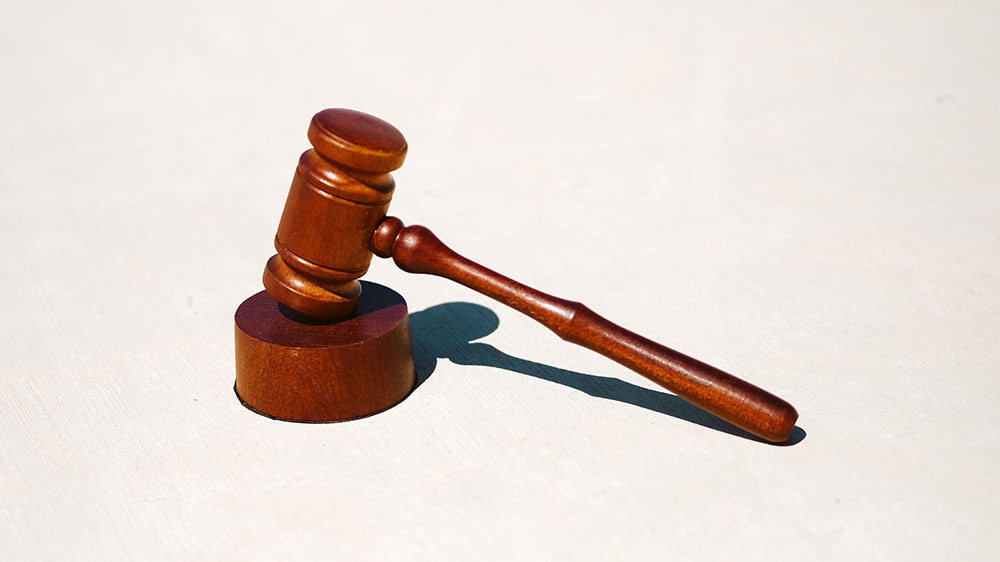Debt Collection in China: A Comprehensive Guide on Getting Your Money Back in 2024
As the world of global commerce is ever-changing, the pursuit of debt collection often becomes a strategic challenge, especially when venturing into foreign jurisdictions. For creditors aiming to recover debts in mainland China, a profound understanding of the legal landscape, and intricate processes is not just beneficial but imperative. This comprehensive guide is tailored to equip creditors with crucial insights into the strategic dimensions of debt collection in mainland China, delving into legal frameworks, challenges faced by global creditors, and how creditors can facilitate the process of getting the debtor to pay the debt more efficiently with professional assistance.
1. Definition and Scope of Debt Collection in China
Debt collection in China refers to the systematic process of pursuing and recovering owed money. It involves a series of strategic actions and negotiations aimed at retrieving outstanding debts from individuals or businesses. Beyond its legal dimensions, debt collection in China often intertwines with cultural considerations, emphasizing the importance of negotiation and mediation before resorting to legal measures. The process is guided by specific legal frameworks outlined in the Civil Procedure Law of the People’s Republic of China, which establishes the foundational principles for pursuing civil actions and encourages alternative dispute resolution methods. Successful debt collection in China requires a nuanced understanding of local laws, cultural practices, and effective communication strategies to navigate the complexities of the business landscape.
1.1 Types of Debt Collection in China
In China, debt collection is categorized based on the nature of financial transactions, obligations, and the methods employed for recovery. The primary distinctions lie in whether the debts involve consumers or businesses and whether the collection methods are amicable or legal. Here are the main categories:
1.1.1 Consumer Debt Collection
Consumer debt collection in China revolves around the recovery of owed funds from individual consumers. This may include outstanding payments related to personal loans, credit cards, or other financial obligations incurred by individuals. The regulatory framework for consumer debt collection is designed to safeguard the rights of consumers, requiring a careful and compliant approach from collectors.
1.1.2 Commercial Debt Collection
Commercial debt collection focuses on recovering debts owed by businesses or entities engaged in commercial activities. This category includes outstanding payments for goods, services, or contractual obligations between businesses. Given the complexity of business relationships, commercial debt collection demands a strategic and legally informed approach to navigating the intricacies of contractual agreements.
1.1.3 Amicable Debt Collection
Amicable debt collection emphasizes a cooperative and non-confrontational approach to recovering owed funds. This method prioritizes negotiation, communication, and mediation before resorting to legal actions. Amicable debt collection is often preferred to maintain positive business relationships and avoid the complexities and costs associated with formal legal proceedings.
1.1.4 Legal Debt Collection
Legal debt collection involves the pursuit of owed funds through formal legal channels. This may include filing lawsuits, obtaining court judgments, and enforcing legal measures to recover outstanding debts. While legal debt collection provides a structured and authoritative approach, it is typically considered a last resort after amicable methods have been exhausted.

2. Laws Governing Debt Collection in Mainland China
Currently, there is no specific legislation in China regarding debt collection. China’s legal framework for debt collection is firmly rooted in the Civil Code of the People’s Republic of China. This comprehensive legislation serves as the bedrock for understanding the intricacies of civil actions, providing creditors with a roadmap for navigating the often-challenging path of debt recovery. Other laws, regulations and normative documents that debt collection must comply with can be found in the following list.
| Laws and Regulations | Relevant Provisions on Debt Collection | |
| 1 | Civil Code of the People’s Republic of China | It serves as the foundation for the conduct of debt collection agencies. Violations in debt collection may potentially encroach upon the privacy, reputation, and name rights of the debtor or the first party, and the Civil Code has provisions addressing these aspects. |
| 2 | Criminal Law of the People’s Republic of China | Unlawful debt collection practices may involve potential criminal risks, including offenses such as infringing on citizens’ personal information, fraud, fabricating false information, and causing disturbances, among other criminal liabilities. |
| 3 | Personal Information Protection Law of the People’s Republic of China | It outlines the principles and guidelines for handling personal information, as well as information management within debt collection companies. |
| 4 | Public Security Administration Punishment Law of the People’s Republic of China | If a debt collector carries out improper debt collection practices that do not rise to the level of a criminal offense, they will be subject to administrative penalties based on the severity of the situation. |
| Normative Documents | Relevant Provisions on Debt Collection | |
| 1 | Notice on Standardizing and Rectifying “Cash Loan Business” | It emphasizes that debt collection agencies must refrain from using methods like violence, intimidation, insults, defamation, or harassment in the debt collection process. |
| 2 | Notice on Further Standardizing Credit Card Business | It requires banks and other financial institutions to oversee delegated debt collection agencies, establish relevant business management systems, define criteria for selecting outsourcing companies, conduct business training, and outline legal and economic responsibilities. |
| 3 | Regulations on the Supervision and Administration of Credit Card Business of Commercial Banks | It specifies the issuing bank, collection personnel, collection scope, and content of credit card collection letters. |
| 4 | Interim Measures for the Management of Internet Loans by Commercial Banks | It requires commercial banks not to delegate debt collection to agencies with a history of violent or unlawful practices and specifies the responsibilities of outsourcing agencies. |
| 5 | Notice from the General Office of the China Banking and Insurance Regulatory Commission on Issuing the Regulatory Measures for Information Technology Outsourcing Risks of Banking and Insurance Institutions | It stipulates the regulatory measures for banks and insurance institutions when implementing information technology outsourcing. As the entrusted party, debt collection agencies should enhance internal control management in accordance with the notice. |
| 6 | Guidelines for Credit Card Collection Work by the China Banking Association (Trial) | Detailed guidelines are provided regarding the code of conduct, internal management, and industry self-discipline for banks, financial institutions, collection agencies, and their collectors. |
| 7 | Self-discipline Convention for Internet Finance Overdue Debt Collection (Trial) | It establishes regulations on the management and specific norms for internet finance overdue debt collection. |
3. Strategies for Successful Debt Recovery
3.1. Challenges of Collecting a Debt in China
Collecting a debt in mainland China presents a unique set of challenges, particularly for international creditors outside of China. The confluence of language barriers, cultural nuances, and unfamiliar legal procedures can significantly complicate the recovery process. Navigating this complex landscape without local expertise becomes a daunting task, potentially leading to delays and inefficiencies in debt recovery.
Lack of legal expertise
The debt collection process is primarily governed by the Civil Code of the People’s Republic of China. But there are other laws and regulations supervising and providing guidance on debt collection practices. China’s legal system can be complex and challenging for foreign creditors to navigate. Creditors who are not familiar with the laws may inadvertently violate them, which can result in legal consequences.
Lack of information
Obtaining accurate and reliable credit information about debtors in China can be challenging as the credit reporting systems in China are not as developed as in some other countries, and public records can be difficult to access.
Time-consuming
Debt collection can be a time-consuming process, requiring multiple phone calls, emails, and letters to the debtor. This can take time away from other important tasks, such as running the business.
Emotionally draining
Dealing with a non-paying debtor can be emotionally draining, especially if the debtor is unresponsive or hostile. This can lead to stress and burnout for the creditor.
Language barrier
As a non-native speaker, it is challenging for the creditor to communicate with the debtor effectively. This can result in misunderstandings or misinterpretations, making it more difficult to negotiate a payment plan or resolve the debt.
Time difference
If the creditor and debtor are in different time zones, it can be difficult to schedule phone calls or meetings at convenient times for both parties. This can result in delays in the debt collection process.
Limited resources
Creditors may not have the resources to pursue debt collection efforts effectively. They may lack the necessary staff, technology, or legal expertise to effectively collect the debt.
Potential damage to business relationships
If the creditor has a longstanding relationship with the debtor, attempting to collect the debt themselves may damage that relationship. This can result in the loss of future business from that debtor.
Considering all these challenges, engaging debt collection services and legal advice in China becomes a strategic imperative for creditors. By doing so, international creditors can not only navigate linguistic and cultural impediments but also streamline the debt recovery process, ensuring a more efficient and successful outcome.

3.2 Importance of Expert Advice in Debt Recovery
For global users seeking success in debt collection on Chinese soil, a local expert’s advice is of paramount importance to them.
Navigating the complex legal terrain
China’s legal landscape can be intricate, especially for global users. A Chinese collection expert has a nuanced understanding of Chinese laws, ensuring compliance and minimizing legal complications, which is crucial for a successful debt recovery process.
Cultural sensitivity in Chinese negotiations
The importance of culture in negotiations with debtors in China cannot be overstated. A Chinese expert can assist global users in approaching these negotiations with cultural sensitivity, fostering positive and effective communication.
Effective cross-border communication
Communication across borders can be challenging. A Chinese local expert can overcome language barriers, ensuring clear and productive interactions with Chinese debtors.
Preserving long-term relationships in the Chinese business landscape
Preserving long-term relationships is a priority. A Chinese collection expert can assist in striking a balance between debt recovery and maintaining positive relationships, crucial for sustained partnerships in the Chinese business environment.
Exploration of alternative dispute resolution in China
A local debt collection expert can guide global users in choosing suitable approaches, including extra-judicial collection, litigation, or arbitration, to expedite resolutions within the Chinese legal context.
3.3 How to select the most suitable Chinese debt collection agency?
Selecting the most suitable debt collection agency is a critical decision that can significantly impact the success of your debt recovery efforts. Here are a few tips to help you navigate the selection process and make an informed choice:
Assessing specialization
Consider the agency’s specialization. Some agencies focus on specific industries or types of debt. Choose an agency with expertise relevant to your particular debt type or industry for more effective results.
Verifying licensing and certification
Ensure the agency is licensed and certified to operate in the relevant jurisdiction. This guarantees that they adhere to legal and ethical standards when collecting debts.
Reviewing industry reputation
Research the agency’s reputation within the industry. Online reviews, testimonials, and references from peers can provide insights into the agency’s track record and the satisfaction of previous clients.
Transparent fee structure
Seek clarity on the agency’s fee structure. A transparent and straightforward fee arrangement helps you understand the collection costs involved and ensures there are no hidden charges or surprises throughout the debt recovery process.
Communication and reporting practices
Evaluate the agency’s communication and reporting practices. Regular updates on the status of your debt and clear communication channels ensure you remain informed and involved throughout the debt recovery journey

3.4 Debt Collection Procedures in China
If you entrust your case to a Chinese debt collection agency, generally the case will go through the following steps:
Case info entry
The case is entered into the collection agency’s system and all corresponding documents are attached to the file. The case is assigned to a collector most qualified and experienced to the claim based on the industry it falls under.
Skip tracing and initial contact
The collector will review the claim and submit it for further skip tracing if necessary. Once the contact information is ready, the collector will attempt to establish contact with the debtor.
Continued contact attempts
If the debtor cannot be reached after the first trial, the collector will continue the attempts with phones, emails, demand letters or even site visits depending on the actual situation.
Payment plan
Once contact with the debtor is established, the expert will communicate with the debtor and make a demand for the full payment. If the debtor is unable to make payment in full, the collector works towards a settlement offer or payment plan based on the debtor’s financial status. Once the debtor pays off the debt following the repayment plan, the debt collection process comes to an end.
Legal action
If the debtor refuses to pay and is uncooperative, indicating there is no hope of reaching a payment agreement, the collection expert may recommend legal action based on the evaluation of the case. With approval from the creditor, one attorney will be assigned to represent the creditor and file a lawsuit against the debtor at the Chinese court.
Judgment enforcement
After a creditor has won a lawsuit against a debtor, the next step is the enforcement proceedings. This involves various methods, including wage garnishment, bank account seizure, and property seizure, to ensure that the debtor repays the outstanding debt.
As the legal action process can be lengthy and costly, it is important to carefully consider whether it is worth pursuing. Amicable collection is typically used in the early stages of debt collection as it is less expensive and may resolve the debt issue more quickly than legal collection. If amicable collection efforts fail, legal collection will be the last resort to solve the debt issue.
4. Resources for Free Debt Recovery Consultation
When seeking assistance with debt collection, creditors often resort to lawyers, who typically charge high hourly service fees. However, a more effective alternative is consulting a collection expert offering free case consultations. Expert Planet stands out as a platform where you can connect with reliable collection experts whose service qualification has been strictly vetted, and all of them operate on a “no-win, no-fee” basis. This not only ensures a free consultation before a collection contract is signed, and if the debt isn’t recovered after a contract is signed, creditors don’t need to pay a penny. The expert’s service fee is transparent, constituting a percentage of the successfully recovered amount.
If you’re grappling with debt collection challenges and having trouble with your cash flow, it’s prudent to seek professional help. Contact a debt collection expert on Expert Planet today. Our pool of experienced professionals can furnish you with tailored advice and solutions, guiding you through the complexities of debt collection. Don’t let unpaid debts impede your business growth – reach out to an expert today!
Conclusion
Collecting a debt in China requires a strategic approach beyond legal expertise. This guide provides essential insights into legal frameworks, challenges faced by global creditors, and effective recovery strategies. In the face of the unique challenges posed by debt collection in China, seeking professional assistance is not just a prudent choice but a strategic imperative. By leveraging the expertise of local professionals, creditors can navigate the complexities, enhance their chances of successful debt recovery.
FAQs
What information should creditors gather before initiating debt collection in China?
Creditors should gather detailed information about the debtor, including contact details, contractual agreements, and any relevant documentation. Access to accurate information is crucial for the success of the debt collection process.
Are there cultural considerations in debt collection negotiations with Chinese debtors?
Yes, cultural considerations play a crucial role. Understanding Chinese business etiquette, communication styles, and the importance of relationship-building is essential for successful debt collection negotiations.
Are there government agencies in China that oversee debt collection practices?
While there isn’t a specific government agency dedicated to debt collection, various laws and regulations provide guidelines. For instance, the China Banking and Insurance Regulatory Commission oversees certain aspects of the credit card business.
How can local experts assist international users in debt collection in China?
Local experts play a pivotal role in navigating the complex legal terrain, ensuring cultural sensitivity in negotiations, facilitating effective cross-border communication, preserving long-term relationships, and exploring alternative dispute resolution methods in the Chinese business landscape.
Can a debt collector in China use aggressive tactics for debt recovery?
No, debt collectors in China are prohibited from using aggressive tactics. The legal framework emphasizes ethical and compliant practices, and debt collection agencies must adhere to regulations outlined in the Civil Code and other relevant laws






